Power, Populism and Politics: How activists are fighting back - the story of the #SaferToBeMe Summit
As populist governments across the world target the LGBTQ+ communities, Simon Williams looks back at the recent #SaferToBeMe 2025 human rights summit, the first global-level LGBTQ+ rights gathering of its kind in the UK and explains why it matters.
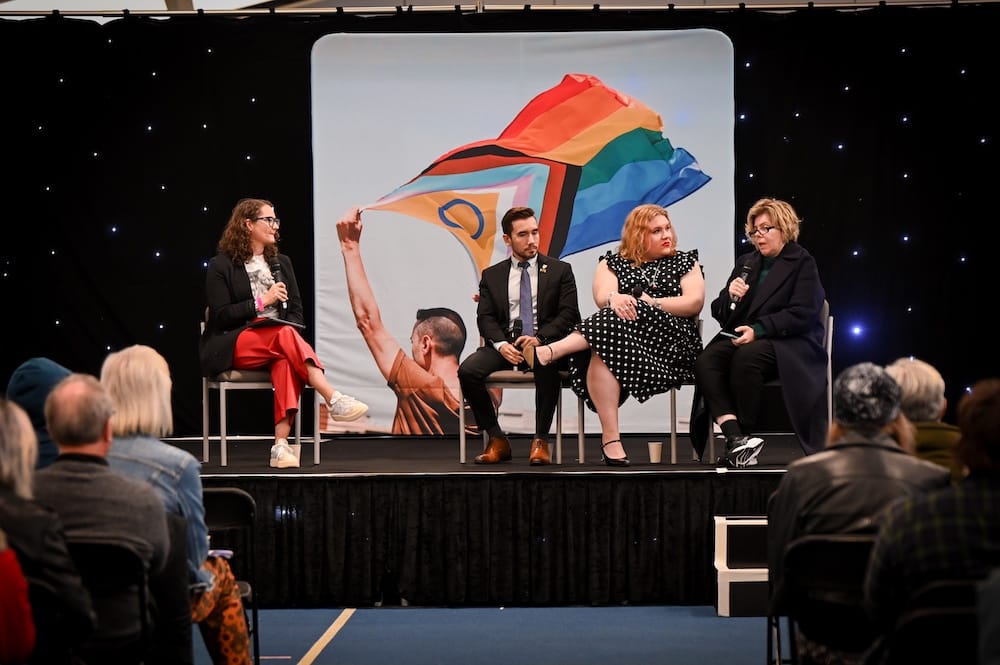
Lead photo by Haydn Brown
As populist governments across the world target LGBTQ+ communities, Simon Williams, who writes on LGBTQ+ equalities, law and queer history, looks back at the recent #SaferToBeMe 2025 human rights summit, the first global-level LGBTQ+ rights gathering of its kind in the UK and explains why it matters.
In October, as autumn leaves dropped onto damp pavements in the lively northern English city of Newcastle, around 500 LGBTQ+ human rights activists from 24 countries and 102 organisations converged like a flock of migrating birds for the #SaferToBeMe Summit. What caused this migration to our wet and windy shores? It wasn’t the warm-hearted and jovial welcome that Geordies, native Newcastle folk, are famed for, though that would have been greatly appreciated too.
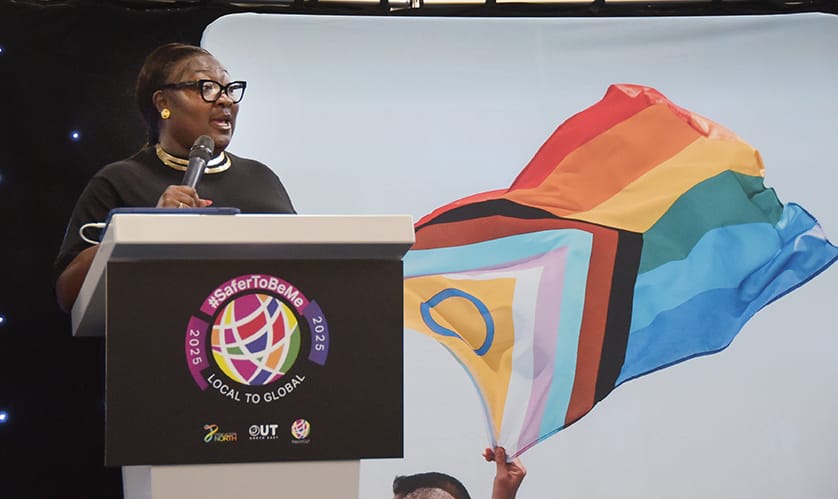
They gathered to exchange ideas and gain inspiration to combat the related threats posed by populism and religious fundamentalism as much of the world lurched into the grip of renewed homophobia and transphobia. Populism and fundamentalism are resurging, sometimes even joining together in deadly alliances against the LGBTQ+ communities. Whether it’s clampdowns on Pride events, erosion of legal rights or scapegoating of the LGBTQ+ communities across the world, their impact is increasingly felt and these 500 activists gathering in Newcastle-Gateshead were determined to stop them.
How did we get here?
The story began back in 2022 when then UK Prime Minister Boris Johnson announced what was planned to be a ground-breaking global summit of LGBTQ+ rights, the first of its kind in the UK. Convened under the slogan ‘Safe to Be Me’. It was billed as a world-class opportunity to showcase the UK’s relatively LGBTQ+ friendly direction of travel. But there was a snag. In March of that year, a leaked government memo, seemingly more concerned with how to get bad news out quietly than protecting the LGBTQ+ communities, revealed that a long-held commitment by Boris Johnson to ban conversion therapies would be dropped, sparking uproar.
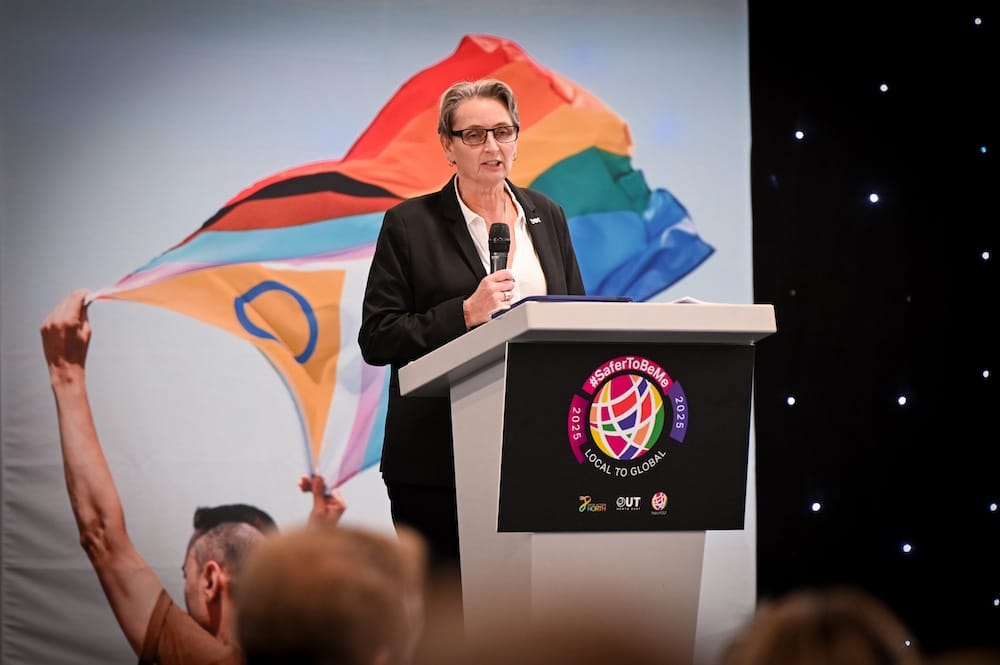
Conversion therapies come in many forms. They range from mild educational techniques to physical and mental interventions and even castration torture. They generally seek to convert a person’s sexual orientation and / or gender identity to a heterosexual and cis or birth gender from the one they identify with. Sometimes the person has volunteered and sometimes they have been compelled. It is often used in settings where peer-pressure is prevalent such as in families, education, healthcare and faith environments to ‘convert’ an individual to a different orientation or identity.
Political summersaults
Just hours after the leak, the government partially relented, announcing it would move forward with a ban but only for sexual orientation, not gender identity. This meant it would exclude protections for trans people given what it called ‘sensitivities’ in treating gender dysphoria. Trans people were basically to be left out in the ‘equalities cold’. This predictably provoked further outrage among LGBTQ+ civil society groups. A group of human rights activists led by Drew Dalton, the CEO of the human rights charity ReportOUT, decided to take a stand. Labelling conversion therapies as “a brutal, archaic, unproven, and deeply-harmful practice, with long-term and detrimental mental health effects.”
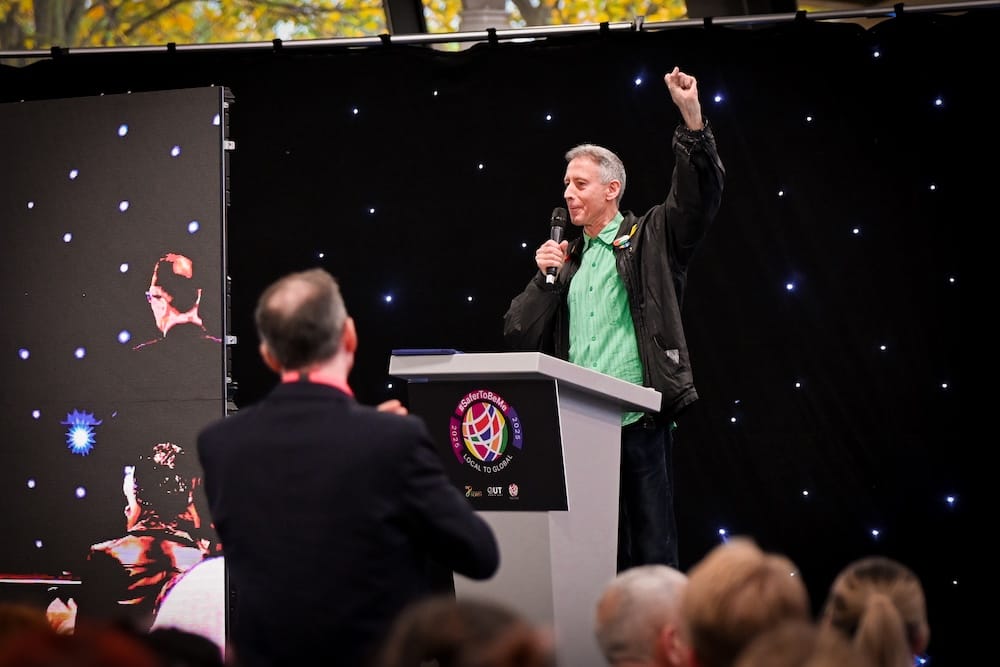
They urged the government to ensure that the ban applied to trans people. “Until then, [their] conference will be a symbol of a place which is NOT Safe To Be Me.” they said, arguing that a partial ban would be an “absolute violation of the basic human rights of trans people in the UK” and would be a contravention of the UN Declaration of Human Rights, which the UK government had ratified. UK advocacy group Stonewall and other LGBTQ+ organisations including ReportOUT withdrew from the conference in protest. The event collapsed.
Rapid response
With the government-backed summit in ruins, Drew and team decided they would fill the breach and quickly rallied like-minded activists. Within a short space of time they had successfully struck a deal with the University of Sunderland to host a grassroots human rights conference or symposium. It was designed to be an unequivocal rallying call to those opposed to conversion therapies and other forms of oppression. On 22 June 2023 #SaferToBeMe opened its doors for a one-day symposium, using the comparative adjective Safer to distinguish it from the ill-fated government version. It was a pioneering event. Around 200 activists and twenty speakers headed to Sunderland in northeast England to discuss the state of global LGBTQ+ rights and plan responses to threats.
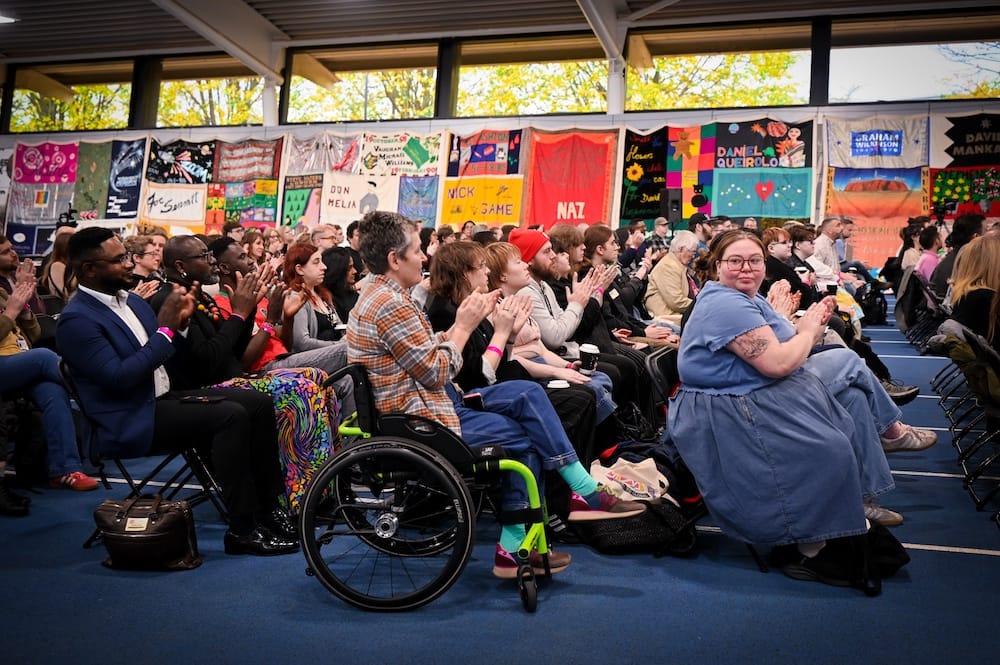
Power, Populism and Politics
However, inevitably the success of the 2023 symposium was gradually overshadowed by world events as they shifted in ever more hostile ways against the LGBTQ+ communities, especially trans people. By the dawn of 2025, we had seen the election of populist anti-LGBTQ+ candidates in many parts of the world, alongside new or ‘re-criminalisation’ laws against consenting homosexuality, and deeply regressive and inhuman penalties introduced against LGBTQ+ populations in parts of the Global South.
The rise of populist movements across Europe and attacks on Trans and other groups in the LGBTQ+ coalition suggested the belief that LGBTQ+ rights would inexorably roll out steadily across the globe was no longer accurate. The UK had already tumbled down mainstream LGBTQ+ equalities rankings, notably the respected ILGA Europe indicator, where it dropped from top place in Europe in 2016 to land in the bottom half in 2025; government inaction, notably on conversion therapies, or decisions in courts such a the UK Supreme Court ruling depriving trans people of gender protections under the UK Equality Act were dragging the UK down.

In the United States, too, there were troubling trends. The number of anti-trans laws at state level surged ten-fold in four years. These laws sought to restrict Trans people from receiving basic healthcare, education, legal recognition or the right to publicly exist in their chosen identity. Around 1,000 bills have been proposed with 122 passed so far in 2025, compared to just 18 in 2021 according to Translegislation.com. It felt like the world was sliding backwards. Drew and fellow activists decided these troubled times needed urgent mobilisation.
#SaferToBeMe 2.0
Drew and team set about launching a second, more ambitious and bolder #SaferToBeMe 2.0. It would be a week-long Summit under the theme of Power, Populism and Politics. After working literally night and day to secure sponsorship, headline speakers and support from the community and business leaders, ReportOUT and its two partner organisations, Out North East and Pride Action North, announced in February a week-long summit would be held in Newcastle and its sister town of Gateshead from 20-25 October.
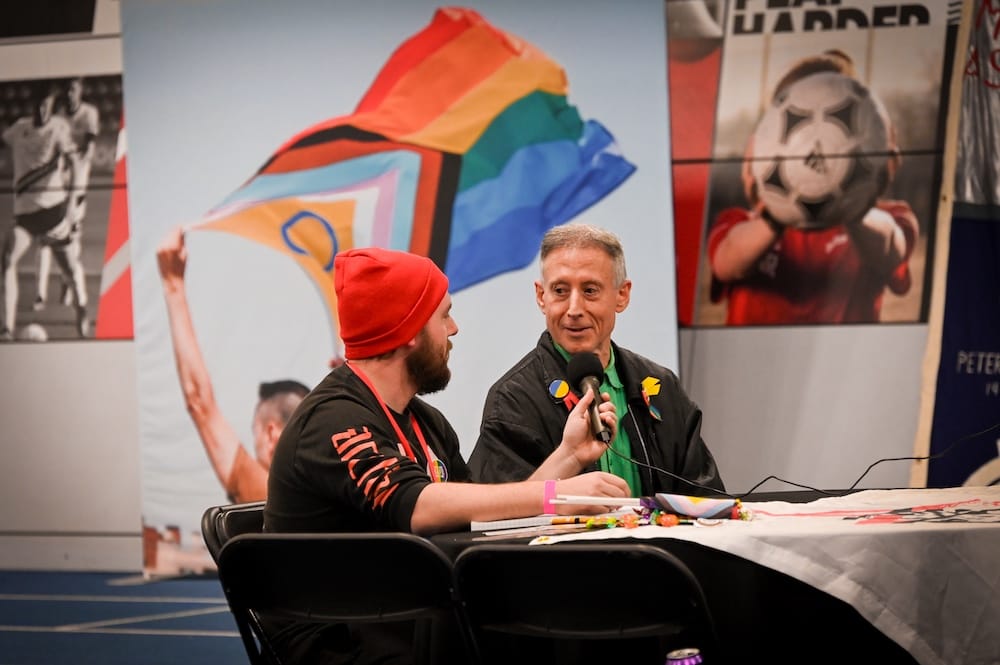
A star line-up of human rights scholars, community activists and concerned individuals answered Drew’s worldwide call and almost 50 expert speakers across human rights, media, faith, trade unions, government, healthcare, education and business agreed to present papers. Keynote speakers included UK Black Pride’s Lady Phyll, human rights campaigner Peter Tatchell, LGBT+ History Month co-founder Professor Sue Sanders and renowned Nigerian church minister Jide Macaulay. Local MP Kate Osborne addressed the conference and captured the atmosphere when she said to applause “We all deserve to be safe”.
Actor-politician Michael Cashman, singer Hazell Dean and Mr Gay World 2024 Paul Carruthers offered messages of solidarity ahead. Summit events included an online health equalities mini-conference, business networking for LGBTQ+ entrepreneurs, training on trans inclusiveness with 42 expert speaker sessions including on how to roll-back the anti-LGBTQ+ narrative in social media and countering disinformation in elections. The conference concluded with a poignant candle-lit vigil beside wall hangings from sections of the UK AIDS Memorial Quilt remembering those who lost their lives to the epidemic.
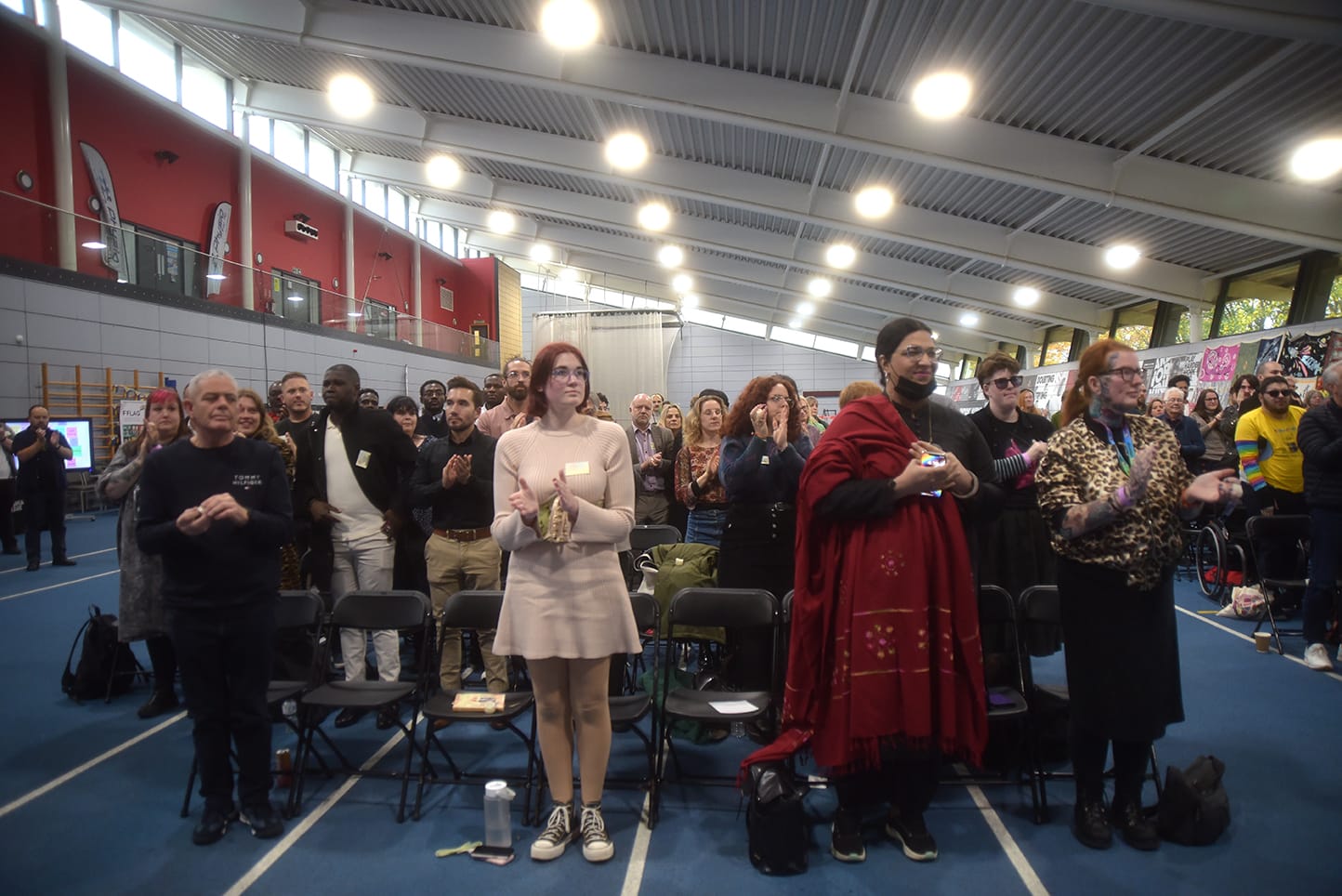
Legacy - the Newcastle-Gateshead Declaration
Before activists headed back to their home countries, they had one remaining duty: to launch the Newcastle-Gateshead Declaration, the first global affirmation of solidarity for LGBTQ+ communities. With pledges of support from civil society, business and city leaders, and diplomatic figures in attendance including the Belgian Ambassador to the UK, the Declaration sought to capture the spirit of the Summit and serve as an enduring rallying call for action.
Drafted by the UK Alliance for Global Equality, a UK-based campaign coalition which tackles global LGBTQ+ discrimination, the Declaration reaffirmed the “universal truth” that LGBTQ+ communities everywhere are born free and equal in dignity and rights, as set out by the UN Declaration of Human Rights of 1948. As a living document, it is open to organisations and individuals to sign publicly or privately.
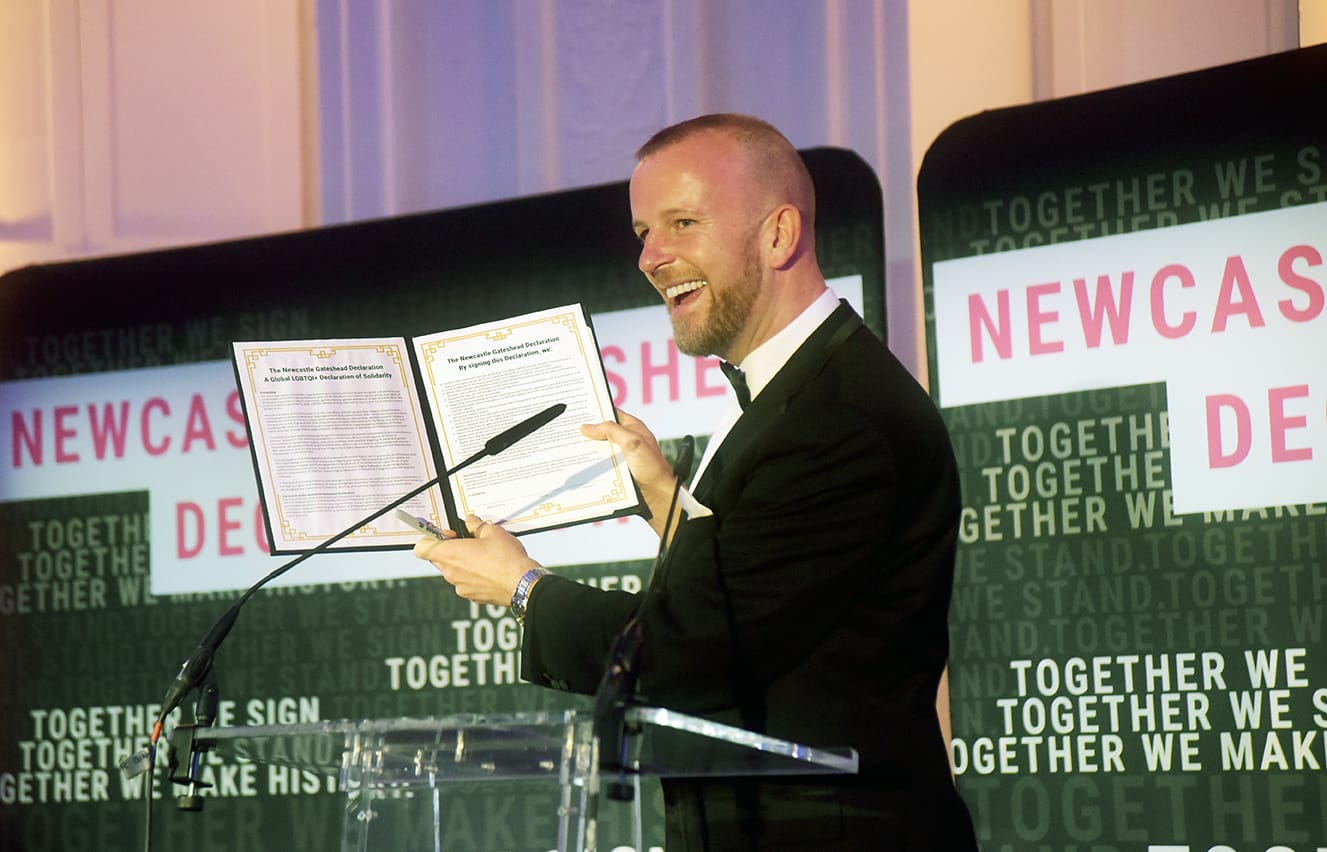
It serves as a beacon and call to action for everyone, everywhere, for those who believe passionately that only when we are all SaferToBeMe, whatever one’s sexual orientation or gender identity, can we be free. #SaferToBeMe 2025 also shows how hard work, grassroots activism and a determined vision can turn disappointment into hope in an increasingly dark and menacing world.
Support independent LGBTQ+ journalism
Scene was founded in Brighton in 1993, at a time when news stories about Pride protests were considered radical. Since then, Scene has remained proudly independent, building a platform for queer voices. Every subscription helps us to report on the stories that matter to LGBTQ+ people across the UK and beyond.
Your support funds our journalists and contributes to Pride Community Foundation’s grant-making and policy work.
Subscribe today

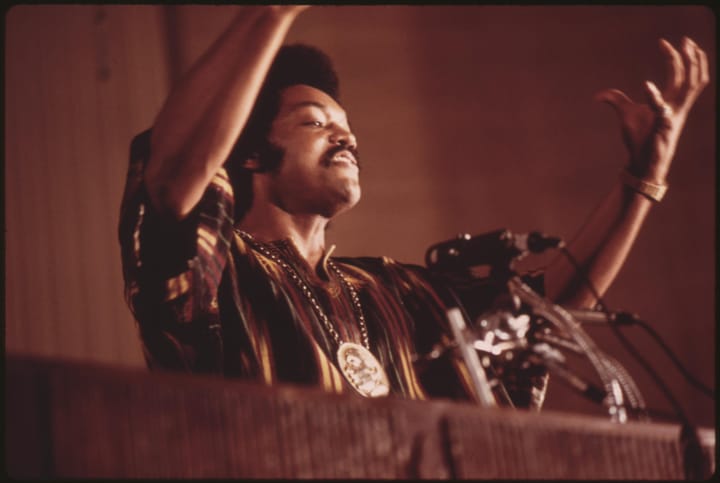
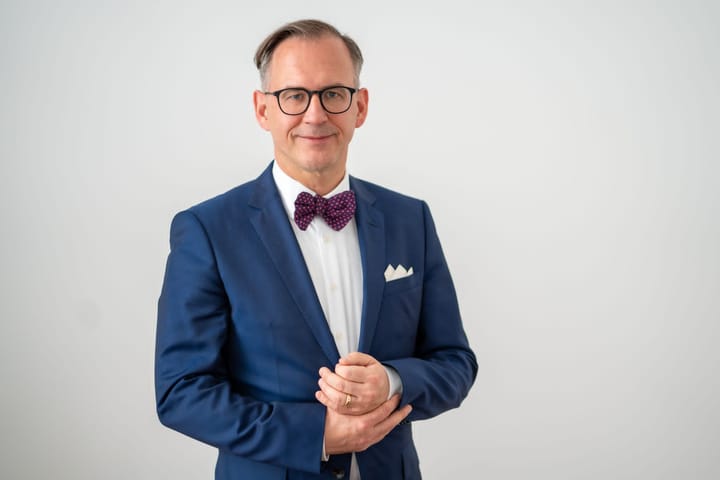

Comments ()